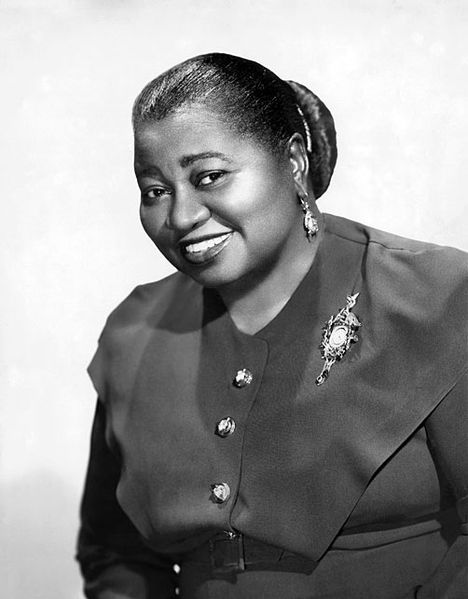For my final blog post I decided to revisit the question that kind of stuck with me during our last class. I don’t remember the question exactly but it essentially said: isn’t bad media representation better than none because it is a start? I sort of answered it in class, but I was still struggling after. And I still, sort of, am struggling with it now. So I’m determined to find an answer by the end of this blog post.

My gut reaction was “no,” but then I thought that, although bad representation was obviously bad, at least actors of color are getting to show their talent – are getting the opportunities they deserve to get. But here’s the thing, are these actors of color actually getting the opportunities they deserve? If a black woman is cast as the angry “baby mama,” then she’s being forced to fit into and reinforce this stereotype.
People may argue that she could always turn down the role, but having the chance to turn down roles is a luxury that not all actors have – especially as an actor of color, since there is already such a limited amount of roles made available for them. When getting multiple chances for endless roles it’s a lot easier to say no to a role that inconveniences you. So in this case, saying no is a luxury not an option.
But let’s say that the person of color being cast is able to say no. They’re not making roles that give better representations. Hollywood and Broadway and all those act-y type things (that I don’t really know much about) have only been creating roles for people of color that are not good representations. So saying no to roles that are problematic means, in this case, that there will basically be no representation at all. Therefore, is it really an option to say no at that point, if that would mean putting an even greater limitation on something that’s already very limited?
Like I mentioned before, bad representations only validate and continue stereotypes for the people represented. And this applies to any oppressed group – if a person in a wheelchair is shown to not be able to take care of themselves in any shape way or form, people are more likely to treat, and feel bad for, people in wheelchairs as if they all need to be saved and taken care of 24/7. Or if there is a very feminine queer couple (for this case let’s go with two women), then all lesbians must be super femme right? But the only ones who end up thinking that are either those who aren’t in wheelchairs or those who are straight, or do not identify with that specific gender. So if white people are seeing movies where people of color are playing very stereotypical roles, or even creating new stereotypes, white people are more inclined to believe them. From all we’ve learned in class about implicit/aversive racism, and things that other psych classes about how easy the mind is to manipulate, it’s not very far fetched to believe that people could easily believe stereotypes created and reinforced in media.
So if bad representation is causing for others to fall into and create stereotypes about people of color… then can we actually say it’s a start? I think my final answer to this is no. Bad representation isn’t better, it isn’t a start, it’s more of a drawback. How would you feel if whatever was supposed represent and relate to you only paints a negative picture, and gives you a false sense of what you’re supposed to/should be?
Throughout this class, I have been fascinated about how media portrays people of color. In terms of the acting world, whether it be on Broadway, TV, the movies, etc., White people seem to be cast way more often than people of color. Despite this fact, there have been relatively new shows that feature people of color, mostly in the family setting such as Black-ish and Fresh Off the Boat… two comedy shows that are highly problematic, but seem to be successful. These shows focus on families of color, but poke fun at Black and Asian stereotypes, which allows for people to laugh at the characters and does’t fix systemic or individual racism at all. Like you said, it worsens it. So in my opinion, bad representation does not serve any good purpose because it further perpetuates racism through comedy or other genres.
I feel like this can apply to any representation, gender, sexual orientation. But the different lies in the power and privilege that is attached to the identity. So i feel like it will affect different identities differently, but i definitely think it’s applicable to most oppressed identities. if that makes any sense?
This is a topic that I find to be very interesting and somewhat confusing to unpack as well. I really liked when you pointed out that people of color may not be in a position to turn down bad roles. The disparity in acting opportunities across racial groups is truly staggering. I found it really interesting when you said that the only people who would believe the stereotype put forward by a poorly represented character would be the people who are not part of that specific demographic. I wonder, though, how that works with people internalizing stereotypes. Could a woman, for example, have stereotypes of woman reinforced by bad media representation?